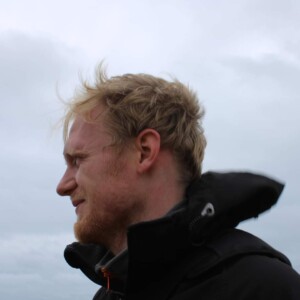
Connor Young
University of Leicester
Project
Creating just, healthy cities: challenging inequalities in health deprivation from air pollution in minority communities
Supervisors
- Prof Paul Monks, University of Leicester
- Dr Kevin Wyche, University of Brighton
- Dr Rebecca Cordell, University of Leicester
- Dr Emmanuel Aboagye-Nimo, Birmingham City University
PhD Summary
Poor air quality presents the largest environmental risk to public health in the UK, with exposure to high concentrations of ambient air pollutants shown to reduce life expectancy through cardiovascular and respiratory diseases. Air pollution is predicted to become the major environmental cause of mortality by 2050, with 90% of the global population currently living in areas exceeding safe exposure limits set by the World Health Organisation air quality guidelines. Research in the UK has shown a link between areas with potentially harmful levels of pollution and high deprivation, of which people of colour are three times more likely to live in a high deprivation-high pollution area, and three times less likely to drive a car than people who live in less polluted-less deprived areas. This raises a question as to inequalities in relation to exposure vs emission, and also potential health inequalities experienced by members of these communities.
My project aims to:
- Identify areas in the UK with high levels of ambient pollution coupled with different indices of deprivation using multi-criteria decision analysis.
- Conduct detailed air composition analysis of identified areas for point source identification and chemical box modelling of potential future scenarios.
- Analyse targeted action and policies set out to reduce air pollution in deprived areas from an air quality and community perspective.
- Understand exposure patterns for different communities resulting from behavioural trends and how different health susceptibilities may be pollutant dependent.
Previous activity
I have completed two degrees at the University of Brighton, BSc in Environmental Sciences and MRes in Atmospheric Science, whilst being a part of the Centre for Earth Observation Science. My undergraduate research focused on changes to tropospheric ozone chemistry during covid-19 lockdowns in urban, suburban, and rural settings in the UK, with the findings supporting the call for emission reduction targets which consider localised tropospheric chemistry and subsequent impacts on secondary pollutant formation. During my MRes degree, I helped to collect, ratify, and analyse data from a range of instruments at the Brighton Atmospheric Observatory, including the installation and preliminary assessment of a MAX-DOAS instrument. This data will contribute to the Integrated Research Observation System for Clean Air (OSCA) campaign, providing novel MAX-DOAS measurements and a unique urban-coastal setting to supplement the NERC supersites of Manchester, Birmingham, and London. My project during this year assessed seasonal variation of primary and secondary air pollutants at the urban-coastal background Brighton Atmospheric Observatory site. The application of MAX-DOAS measurements comparative to established long path DOAS concentrations and Sentinel-5P TROPOMI column densities provided insight into the suitability of this data for use in air quality assessments.
Why did you choose doctoral research?
Research projects were my favourite aspects of my undergraduate degree, which led to me choosing a Master of Research postgraduate course. I like the freedom and creativity associated with designing your own research projects based on what interests you in the literature, and the possibilities to be involved in discovery science in a way that can potentially have a positive impact in the world.
Why did you choose CENTA?
My CENTA studentship provides me the opportunity to work with the state-of-the-art facilities at the Space Park Leicester research institute, supported by a supervisory team of highly respected experts in their individual fields. CENTA provides an extensive training program across multiple institutions to ensure any possible training needs can be met, and additional CASE funding for my studentship includes research training experience and collaboration with industrial partner Satellite Applications Catapult.
Future plans
Currently my future plans are to continue to research into air quality and public health, whether that be in a university or industry role. I would also be interested to research or work within a government department, where I can help inform and create policy relating to reducing public health risks from air pollution.
